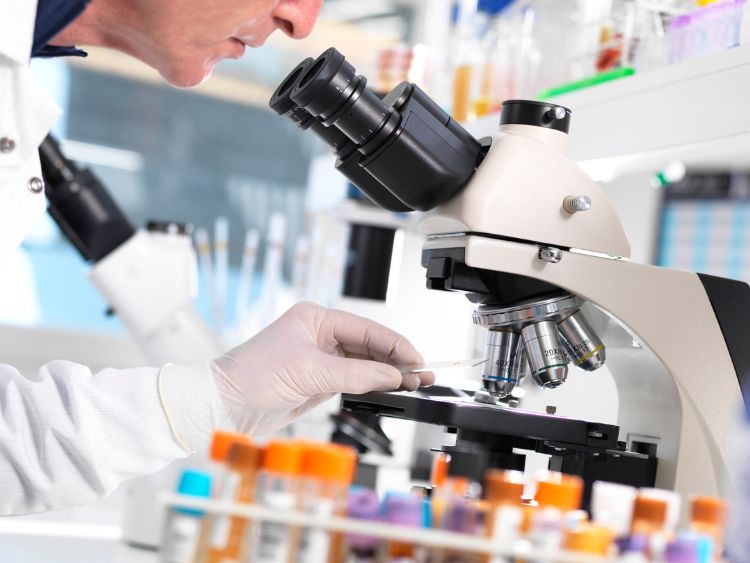Have you ever wondered how advancements in genetic testing are transforming the landscape of medical diagnoses and treatments? One of the most groundbreaking developments in recent years is DMD genetic testing, a crucial tool in identifying Duchenne Muscular Dystrophy (DMD). This article delves into the intricacies of DMD genetic testing, its importance, procedures, and implications for patients and their families. So, let’s get started and unravel the mysteries of DMD genetic testing.
What is DMD Genetic Testing?
DMD genetic testing refers to the examination of DNA to identify mutations in the DMD gene, which is responsible for producing dystrophin, a protein essential for muscle function. Duchenne Muscular Dystrophy is a severe, progressive muscle-wasting disease primarily affecting boys, with symptoms often appearing between ages 2 and 5.
Importance of DMD Genetic Testing
Understanding the significance of DMD genetic testing is pivotal. This testing not only confirms the diagnosis of Duchenne Muscular Dystrophy but also helps in:
- Identifying Carriers: Women who are carriers of the mutated gene can pass it to their offspring, so genetic testing is crucial for family planning.
- Personalized Treatment Plans: Knowing the specific mutation type can guide doctors in tailoring treatment plans and predicting disease progression.
- Research and Clinical Trials: Genetic testing data contribute to ongoing research and the development of new therapies.
How is DMD Genetic Testing Conducted?
The process of DMD genetic testing involves several steps, each critical in ensuring accurate results.
1. Sample Collection
The first step is obtaining a DNA sample, typically through a blood test or a cheek swab. This sample is then sent to a laboratory for analysis.
2. DNA Analysis
In the lab, technicians use various techniques to examine the DNA. Common methods include:
- Multiplex Ligation-dependent Probe Amplification (MLPA): Detects deletions and duplications in the DMD gene.
- Next-Generation Sequencing (NGS): Provides a comprehensive view of the gene, identifying smaller mutations that MLPA might miss.
3. Result Interpretation
Once the DNA analysis is complete, geneticists interpret the results, identifying any mutations present. These findings are then shared with the patient and their healthcare provider.
Types of Mutations Detected in DMD Genetic Testing
DMD genetic testing can uncover a variety of mutations, each affecting the dystrophin protein differently.
1. Deletions
These are the most common mutations, where large sections of the DMD gene are missing.
2. Duplications
Here, sections of the gene are duplicated, leading to an abnormal dystrophin protein.
3. Point Mutations
These involve small changes in the DNA sequence, which can disrupt the function of dystrophin.
The Role of Genetic Counseling
Genetic testing can be an emotional rollercoaster. Genetic counselors play a crucial role in guiding patients and their families through the process. They provide:
- Pre-test Counseling: Explaining the testing process, potential outcomes, and implications.
- Post-test Counseling: Interpreting results, discussing next steps, and offering emotional support.
Advances in DMD Genetic Testing
The field of genetic testing is ever-evolving, with continuous advancements improving accuracy and accessibility. Recent innovations include:
- Whole-Exome Sequencing (WES): Offers a detailed analysis of the entire exome, providing comprehensive mutation data.
- CRISPR-Cas9: A groundbreaking gene-editing technology with the potential to correct DMD mutations directly.
Frequently Asked Questions (FAQs)
What is Duchenne Muscular Dystrophy (DMD)?
DMD is a genetic disorder characterized by progressive muscle degeneration and weakness, primarily affecting boys due to mutations in the DMD gene.
Who should undergo DMD genetic testing?
Individuals showing symptoms of DMD, those with a family history of the disease, and potential carriers should consider genetic testing.
How accurate is DMD genetic testing?
With advancements in technology, DMD genetic testing is highly accurate, though no test is infallible. Confirmatory tests may be required.
Can DMD be treated?
While there is no cure for DMD, early diagnosis through genetic testing can lead to better management and improved quality of life through personalized treatment plans.
How does genetic counseling help?
Genetic counselors provide crucial support, helping patients understand their risks, the testing process, and the implications of test results.
Summary
DMD genetic testing is a powerful tool in the fight against Duchenne Muscular Dystrophy, offering vital insights for diagnosis, treatment, and research. As technology advances, the accuracy and scope of genetic testing continue to improve, providing hope for better management and potential future therapies. By understanding the process and importance of DMD genetic testing, patients and their families can make informed decisions and navigate the challenges of this condition with greater confidence.
Authoritative Links
- https://www.ncbi.nlm.nih.gov/pmc/articles/PMC3142067/
- https://www.mda.org/disease/duchenne-muscular-dystrophy
- https://www.genome.gov/genetics-glossary/Duchenne-Muscular-Dystrophy
- https://www.mayoclinic.org/tests-procedures/genetic-testing/about/pac-20384827
- https://www.parentprojectmd.org/understanding-dmd/diagnosis/genetic-testing/
By incorporating these elements, this article aims to provide a comprehensive, engaging, and SEO-optimized overview of DMD genetic testing, helping readers understand its critical role in diagnosing and managing Duchenne Muscular Dystrophy.

